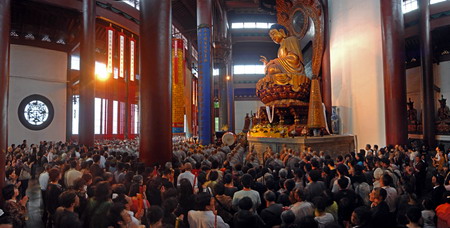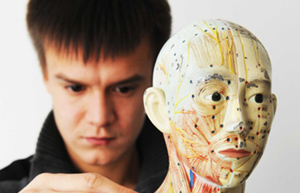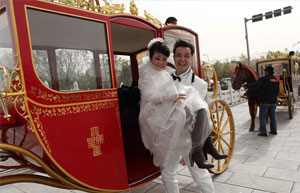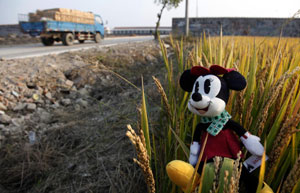Growing interest in religious tourism
Updated: 2010-11-19 14:59
By Shan Juan (China Daily)
Visitors and Buddhists make pilgrimages to Lingyin Temple in Hangzhou, Zhejiang province on May 2, 2009. [Photo / China Daily]

Freer policies have contributed to flourishing spiritual businesses
BEIJING - Yang Haiyun, 57, who became a Buddhist in the late 1980s, tries to visit at least two sacred sites of Buddhism each year.
"I enjoy staying in temples for several days from time to time, so I can study Buddhist scripture, meditate and learn from other pilgrims from all walks of life," she told China Daily on the way to a temple in Zhongnan Mountain in Northwest China's Shaanxi province.
"These short stays give me peace of mind and better tolerance toward the harsh realities and difficulties of our fast-paced lives," said the Xi'an native, who retired as a primary school teacher last year.
"A growing interest in religion among the Chinese has boosted the country's fledging religion-related tourism market over the past decade," said Yang Fenggang, a professor who heads the Center on Religion and Chinese Society at Purdue University in the United States.
The rising number of tourists at religious places such as the Shaolin Temple, well known as the symbol of Chinese kungfu, is giving more people a chance to learn about religion, Yang said.
Of the 130,000 religious sites on the Chinese mainland, many have turned into tourist attractions.
"Now, about 85 percent of the people in China hold some religious belief or practice some kind of religion," Yang said, citing the result of a Chinese spiritual life survey conducted in 2007 by the Beijing-based Horizon Research Consultancy Group.
Folk religion, also called popular religion, is also counted in the survey, he added.
In China, folk religion is widespread among people who might not follow any institutional religion like Buddhism or Islam but practice a lot of fortune telling and feng shui, he noted.
The growth of Buddhism is extraordinary, with about 18 percent of the 7,021 respondents in the survey claiming to be believers.
Going by that percentage, more than 200 million people in the country would believe in Buddhism.
However, a decade ago, the number was about 100 million, according to the estimation by the Buddhist Association of China.
Besides some tourism destinations that feature religion, such as the Wudang Mountain in Central China's Hubei province, which is rich in Taoism culture, the Beijing-based China Sunrise Travel Service has also launched religion-themed routes to Nepal and China's Taiwan in recent years, Zhang Rui, a manager for the company's religious tourism sector, said.
Such tours usually include stays in temples and other religious activities like meditation and Buddhist lecturing, she said.
Also, tourism has become a major income source for places of worship, experts said.
In 2001, the famous Buddhist Lingyin Temple in East China's Hangzhou city, reported its annual revenue of about 70 million yuan ($10.5 million), according to Li Xiangping, a professor who heads the religious culture research center at East China Normal University.
The temple's revenue now might have surpassed 1 billion yuan, he said in a recent interview.
Driven by profits and more media exposure, local governments of cities where some religious sites exist have begun to launch projects, such as building or renovating temples and marketing them nationwide, said Li.
Paper's Digest

China bags Asiad team tennis title after 24 yrs
Wimbledon semifinalist Li Na led host China to capture the team tennis title on Tuesday at the Asian Games, accomplishing her Asiad tour with three consecutive victories.
China rate rises no panacea to curb inflation: PBOC adviser
Specials

Russian possessed with TCM
Born into a family of doctors, Maxime became interested in Traditional Chinese Medicine (TCM) at the age of 12, after hearing about TCM theories such as health preservation and recuperation.

Acupuncture takes stab at UNESCO list
Acupuncture and Peking Opera have been selected as candidates for UNESCO intangible cultural heritage status.

The wedding coach comes back to life
A groom carries his bride from a wedding coach in Xuchang, Henan province, Nov 11, 2010. Produced a local factory, various original hand-made wedding carriages were displayed on the streets, attracting young people chasing fashion and an environment-friendly lifestyle.
 US companies still want to do business
US companies still want to do business



